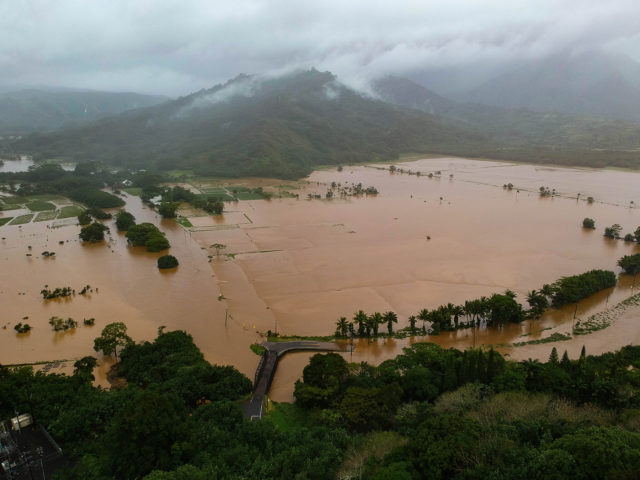Hear from a panel of experts about key vulnerabilities in the state’s critical systems, preparedness, and successful community responses, information especially timely in light of growing concerns regarding the response to COVID-19.
“The spread of the new coronavirus provides us with a case study in how communities in Hawaiʻi should always be prepared, as well as how critical systems may be impacted,” said Dr. Albie Miles, Assistant Professor of Sustainable Community Food Systems at UH West O‘ahu.
The University of Hawaiʻi–West O‘ahu’s Distinguished Visiting Scholars Fund will host “Critical Systems, Disaster Preparedness & Community Resilience on the North Shore of Kaua‘i,” 6 to 8 p.m., April 16, in the Campus Center multi-purpose room, C208.
The event will feature panelists David Lopez, Critical Systems Planner for the State of Hawaiʻi Emergency Management Agency (HI-EMA), and Miles. Organizers encourage students, faculty, staff, and community members to attend the event, which will cover significant and timely topics.
“With a residential population of over 1.4 million and 9 million annual visitors, Hawai‘i is one of the most geographically isolated and food import-dependent populations in the world,” Miles said. “Importing over 90 percent of its food and fertilizer, and over 73 percent of its energy, the Hawaiian Islands are uniquely vulnerable to statewide and community food insecurity in the face of anthropogenic climate change, fuel price fluctuations, and other economic or natural disturbances.”
Specifically, the system of shipping food into Hawai’i has few functional redundancies in key import infrastructure, including ports and off-loading equipment, and with little state-led resilience measures or emergency food reserves in place for maintaining food security in the instance of significant natural or human-induced disasters, he said.
“The talk will provide an analysis of the key vulnerabilities in the stateʻs critical systems, how all Hawaiʻi households are advised to prepare, and how communities have successfully responded in times of natural disaster,” Miles said.
“Critical Systems, Disaster Preparedness & Community Resilience on the North Shore of Kaua‘i” will identify key system risks to the food supply of Hawaiʻi and summarize the anticipated impacts of climate change on food pricing and community food security among the state’s most vulnerable populations. Case studies in community resilience from Kaua‘i will be presented along with a range of strategies promoting equitable access to healthy foods and culturally appropriate food ways. Research, education, and public policy initiatives aimed at achieving food system resilience and equity in Hawai‘i will also be outlined.
Event attendees will be provided with dinner. For more information, email serina@hawaii.edu.
